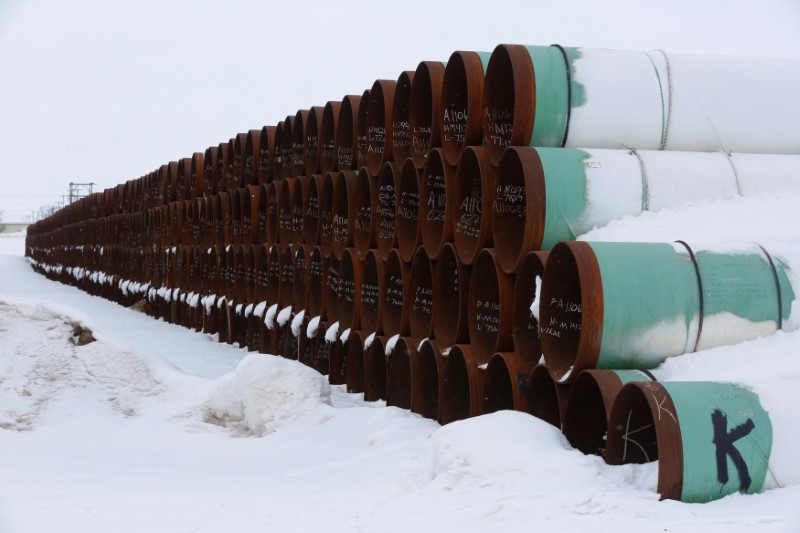(Deletes incorrect reference in paragraph 6 to collection ofduties)
WASHINGTON, March 5 (Reuters) - The U.S. International TradeCommission on Monday voted to continue anti-dumping and subsidyinvestigations into imports of large-diameter welded pipe fromCanada, China, Greece, India, South Korea and Turkey, it said ina statement.
The U.S. Commerce Department said last month it wasexamining whether manufacturers from those countries are sellingthe pipe in the United States at below-market rates or are beingunfairly subsidized by their governments.
The trade case comes amidst global trade jitters after U.S.President Donald Trump said last week he would impose broadtariffs on imports of steel and aluminum to protect U.S.national security under a Cold War-era trade law, a move thatcould raise consumer prices and ignite a trade war. Imports of the welded steel pipe, used to build oil and gaspipelines, in 2016 totaled $441.4 million from the sixcountries, department data show. probe was launched after a petition from a group ofprivately held U.S. producers and covers welded carbon and alloysteel pipe larger than 16 inches (406.4 mm) in diameter.
The pipe can be used to transport oil, gas, slurry, steam orother fluids, liquids or gases.
The investigation is one of around 100 the Trumpadministration has opened since taking office, which it says areaimed at protecting U.S. manufacturers in global markets.
The Commerce Department estimated that in 2016 imports oflarge-diameter welded pipe from Canada had a value of $66million, China $139 million, India $26 million, Greece $70million, South Korea $150.3 million and Turkey $116.1 million.
It estimated dumping margins at 50.89 percent for Canada,120.84 percent to 132.63 percent for China, 41.04 percent forGreece, 37.94 percent for India, 16.18 percent and 20.39 percentfor South Korea and 66.09 percent for Turkey.
"Dumping" is the practice of selling goods below marketprice.
The Commerce Department is scheduled to make its preliminarysubsidy decision by April 16 and its preliminary dumpingdetermination by June 29.
Trump campaigned on a platform of restoring a level playingfield to trade relations, in particular with China. Even beforethe steel and aluminum tariff proposals, his administration wasaccused of courting a trade war by vetoing new appeals judges atthe World Trade Organization, hobbling the trade disputesettlement system and running the risk that trade friction willexplode into tit-for-tat actions.
